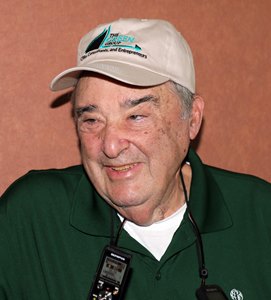Accounting, Taxes Discussed as OwnerView Series Begins


The 2023 Thoroughbred Owner Conference streamed its first panel March 7, with a dive into accounting and tax considerations for Thoroughbred owners.
The conference series is hosted by The Jockey Club and the Thoroughbred Owners and Breeders Association and presented by Bessemer Trust, Stoll Keenon Ogden, and The Green Group. The panel was sponsored by Mersant International.
The panel was moderated by Gary Falter, project manager for OwnerView, and the panelists were Len Green, founder and chairman of The Green Group; Jonathan Green, a certified financial planner and manager of D.J. Stable; and Aron Yagoda, Thoroughbred owner and a board member of the New York Thoroughbred Horsemen's Association.
The panel covered a broad range of topics, including understanding the cost of ownership, principles of accounting, tracking revenues and expenses, tax considerations, sales, and giving back to the industry.
Virtual attendees could ask questions through the question-and-answer link toward the beginning of the discussion and again at the end of the panel.
The panel began with a discussion on the general costs of owning racehorses and how to budget.
According to Yagoda, to begin you must hire a trainer and understand training costs, which can be about three-quarters to 80% of your monthly bill.
"They (training costs) range from $65 a day to $125 a day depending on where you're racing and what circuit you are racing in, and there are other costs associated with that that you have to take into consideration." he said.
"You are talking about another anywhere from $1,000 to $3,000 a month that constitutes veterinary bills, vanning, blacksmith, travel, and race expenses," Jonathan Green said.
"There is really not much price difference between campaigning a $5,000 claiming horse or campaigning a graded stakes winner," he continued. "The expenses are all almost the same. The fixed costs are almost the same. The only difference is if you have a better horse you are going to spend a little more on investing in stakes nominations and maybe a little bit less in vet fees, but otherwise it costs almost the same amount of money."
With regard to tax considerations, Len Green explained some of the differences between owning racehorses and other assets and some of the different types of deductions and expenses associated with horse ownership.
"People who specialize in the business really know how to save your taxes and maximize your deductions, and you really want to be active enough to do each of these things," Len Green said. "The key to having a chance to make money is to be active and keep records and see where you are and, if necessary, pivot and change the way you are doing things."
The session concluded with a discussion about how owners can give back to the industry.
"The way that we look at it and try to promote it to our clients is that when you buy a horse, you are buying a horse for that horse's lifetime. You are not just buying it for that horse's racing career," Jon Green said. "If you have an opportunity to repurpose that horse and retrain it to have a second career, we really feel like that's what you should be doing."
The replay of Tuesday's panel and previous Thoroughbred Owner Conference panels is available.
Nine additional Thoroughbred Owner Conference virtual panels are scheduled for 2023.
The next session will be held April 4 at 2 p.m. ET and will feature expert handicappers discussing the details of a variety of betting options and handicapping your horse's race. A full schedule can be found here.
There is no registration fee for the 2023 virtual conference series, but registration is required. More information about the owner conference series, including the schedule of panels and registration, is available online or by contacting Gary Falter at 859.224.2803 or gfalter@jockeyclub.com.
